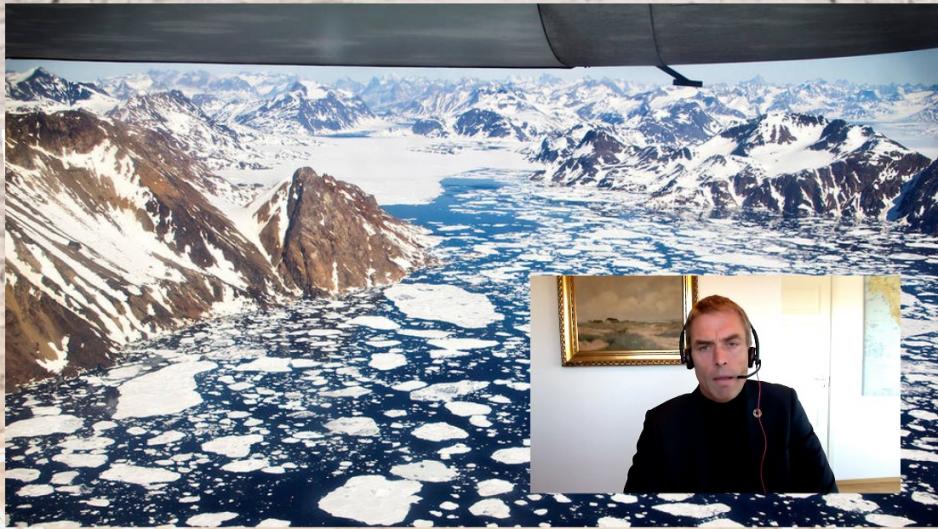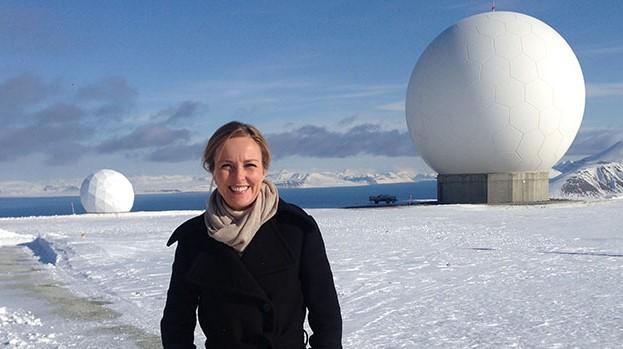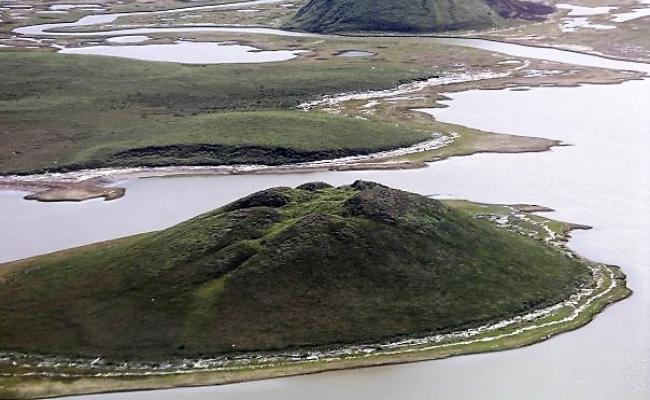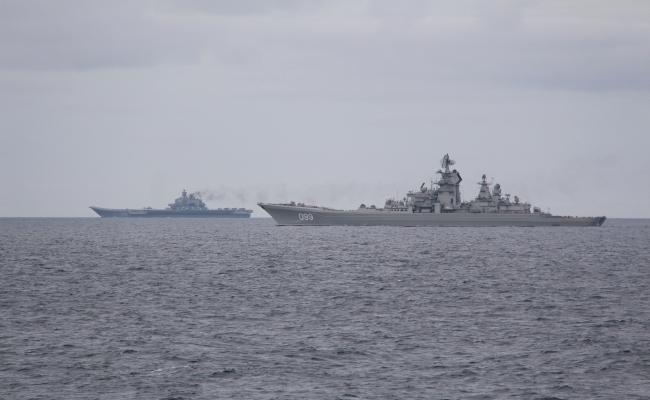“For Every Centimeter the Sea Level Rises, One Million more People Will Have to Evacuate”

Tore Furevik, Director of the Bjerknes Centre for Climate Research in Norway, warned against the rapid warming of the Arctic. On the photo is an aerial view of the icebergs near Kulusuk Island, off the southeastern coastline of Greenland, a region that is exhibiting an accelerated rate of ice loss. (Photo: NASA Goddard Space Flight Center)
Millions of climate refugees, lost species and less fish to feed a growing population. This is the nearby future unless the emissions are cut on a global level, climate researcher warns.
“The changes in the Arctic is happening fast. Every second we are emitting 1300 tons of CO2 into the atmosphere, and the CO2 is changing its composition. We now have the strongest greenhouse effect that the earth has experienced for millions of years”, warns climate researcher Tore Furevik.
During a webinar debate Hosted by the OSCE Parliamentary Assembly, to better understand the effects of climate change in the Arctic, Tore Furevik, Director of the Bjerknes Centre for Climate Research in Norway, warned against the rapid warming of the Arctic.
He describes how climate researchers use observations as well as satellites and models to explore the Arctic and to measure the changing size and thickness of the polar sea ice. They also find that gravity actually changes as the large ice cap on Greenland melts into the ocean.
Too conservative
“We have had this knowledge for at least 20 years”, says the professor who together with a colleague wrote a report on the disappearing sea ice back in the year 2000.
“The report was called “Arctic without ice” and this topic was so new back then that it made headlines worldwide. We predicted the ice to disappear in 50 years. But now we can say that we were probably too conservative in our predictions. We will see this sooner”, Furevik explaines.
Need to cooperate
To the OSCE PA’s Special Representative on Arctic Issues, Torill Eidsheim (Norwegian Conservative Party), says it is completely necessary for the OSCE’s parliamentary assembly to involve itself in what happens in the Arctic.
Species like the cod will move east and north into the Russian Arctic.
«Even for people in Norway, living close to this wild and seemingly unspoilt nature, it can be easy to assume that the changes taking place in the Arctic are isolated and far away; that they simply don’t concern us. The Arctic must seem even more remote if you live in a country where basic democratic rights and security are under threat”.
«But these changes are actually happening, and they will affect us all. International cooperation at a parliamentary level – not least in Europe – is more important than for a long time,» says Eidsheim.
Atlantification of the climate
2-3 degrees of warming in just two decades is dramatic. The sea ice is disappearing in front of our eyes.
Furevik says that we so far have lost more sea ice than the area of France, Spain, Italy and Poland combined.
We also see large changes in the waters below the sea ice, where fresh cold Arctic water is being replaced by more salty, warm Atlantic water.
Climate researchers call it Atlantification of the climate.
Also read
"Seven Olympic sized swimming pools every second"
“40 years ago the sea ice was solid an thick. Now its thin and fragile. Furthermore, all the worlds glaciers are melting. Greenland is melting. Antarctica is melting. We can’t imagine the proportions, but try to picture seven Olympic sized swimming pools filled up every second”, says Furevik.
That is the amount of melting from Greenland in 2017.
What does this mean for the world’s population? It means that sea level will rise faster than we have believed.
And for every centimeter with additional sea level rises, one million people more will have to evacuate.
Less salty oceans
“How will water quality affect us when the oceans contains less salt?” OSCE PA Vice-President Margareta Cederfelt asks during the debate.
“When warmer and more salty water replaces the cold and fresh water, the ecosystem will respond to it. Species like the cod will move east and north into the Russian Arctic. The warming will change the ecosystem and we will lose some of the Arctic species to the climate change. The fact is that globally we will have less fish in the future, with more people to feed”, answers Furevik.
So what can parliamentarians do to help slow down the climate changes in the Arctic? Sharing of science and collaboration are two key points.
Cut in emissions
“And we can all highlight these issues in our own Parliament. If we do not stop using black energy now, the future will be black for our children”, adds Peter Juel-Jensen (Liberal Party) of the Danish Parliament.
Juel-Jensen would like to cut down 70 percent of emissions as soon as possible, but warns it will be expensive.
“But we are acting too late. Stop using oil and gas and invest in wind- and sea power. As long as we keep talking, nothing will happen and we are taking away any chance of normal life for our children”, states Juel-Jensen.
Only one thing to do
“What – if anything – can be done on a political level to slow down the effect of climate change?”
“There is only one thing that can slow down this development, and that is to stop emissions of greenhouse gases as soon as possible”, is the clear answer from Tore Furevik.
The debate between OSCE Parliamentary Assembly and climate researchers was held to enhance the knowledge on climate change dynamics and their impact on the environment and on people’s lives, and thus better understand how to work towards addressing global warming as a full-fledged human security threat.




